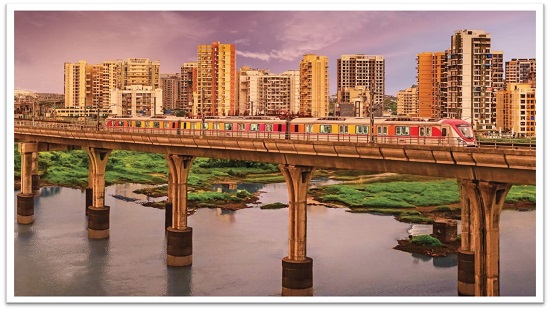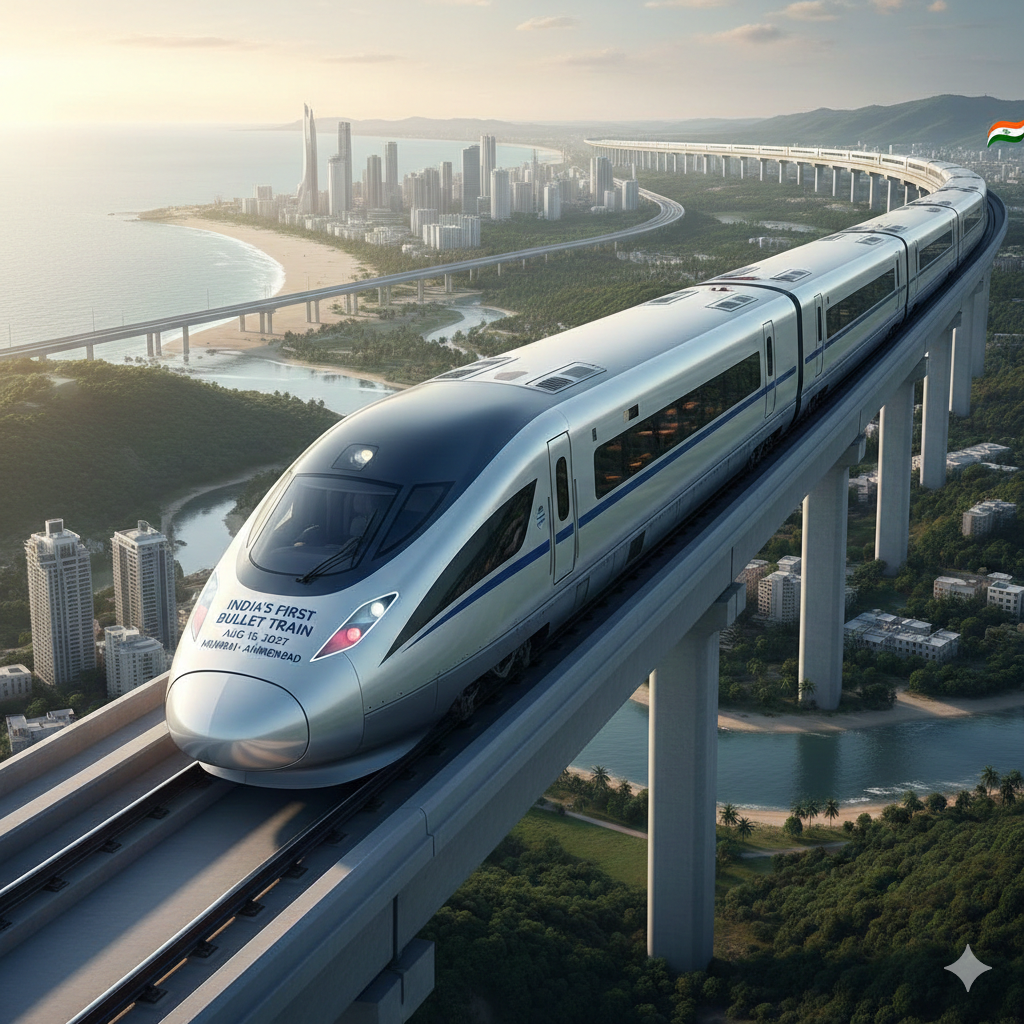
Navi Mumbai Metro Surges Past 1.15 Crore Riders, CIDCO Unveils Major Expansion Plans to Transform City Mobility
Navi Mumbai has reached a defining moment in its public transport journey, as Metro Line 1 (Belapur–Pendhar) officially crossed a cumulative ridership of 1.15 crore passengers within just two years of operations. What began as a long-awaited addition to the city’s transit infrastructure has rapidly evolved into one of its most trusted mobility services. The milestone points to a growing public preference for clean, reliable and predictable transport options in a rapidly urbanizing region.
CIDCO Vice-Chairman and Managing Director Vijay Singhal congratulated the Metro team for the achievement, describing it as a clear reflection of the system’s rising impact on Navi Mumbai’s daily mobility patterns. His remarks highlight an important shift in how residents are embracing mass transit as an alternative to road congestion, fluctuating travel times and increasing vehicular load.
A Growing Mobility Lifeline for Navi Mumbai
Metro Line 1, connecting Belapur, Kharghar and Taloja, was launched on November 17, 2023, and formally dedicated to the nation by the Prime Minister on January 12, 2024. In just 24 months, the network has demonstrated strong commuter loyalty, driven by its consistent service and strategic alignment with residential and commercial hubs.
Singhal noted that the Metro has significantly enhanced access to offices, housing complexes and industrial zones across three major nodes. He thanked Navi Mumbai residents for their “overwhelming support,” reaffirming that the Metro’s success is ultimately a reflection of commuter trust.
With ridership numbers growing steadily, the line has become more than just a transport service. It has emerged as a vital connector for daily workers, students and residents navigating one of Maharashtra’s fastest-growing urban corridors.
Operational Enhancements Strengthen Public Confidence
According to senior CIDCO officials, operational improvements have been instrumental in accelerating ridership growth. The Metro team has focused on maintaining affordability while improving travel convenience, ensuring that the service remains attractive to a broad cross-section of commuters.
Key upgrades include:
• Revised peak-hour frequency with trains every 10 minutes
• Non-peak frequency improved to every 15 minutes
• Rationalised and commuter-friendly fares ranging from ₹10 to ₹30
• Enhanced timetable consistency to reduce wait times
These modifications have strengthened reliability, a crucial factor for daily commuters seeking predictable travel times. CIDCO’s strategy blends affordability with operational discipline, creating a service model that aligns with Navi Mumbai’s socio-economic profile and evolving transport needs.
Two Years, Over 1.15 Crore Commuters
Crossing a ridership of 1.15 crore in two years is not merely a statistic. It reflects a shift in commuter behaviour, confidence and expectations. The number highlights:
• Strong acceptance of rail-based transit
• Reduced dependence on road-based travel in key clusters
• Increased demand for environmentally sustainable mobility options
• Rising preference for seamless, low-cost connectivity
With Navi Mumbai expanding rapidly, particularly across nodes like Kharghar and Taloja, the Metro’s growth is consistent with broader urban development patterns. As commercial activity increases and new housing clusters emerge, dependence on reliable mass transit is expected to deepen.
CIDCO’s Expansion Blueprint for a Future-Ready Metro Network
With demand climbing steadily, CIDCO is preparing to significantly expand its Metro network. Line 1 is set to be extended directly to the upcoming Navi Mumbai International Airport (NMIA), which is expected to become a major transit hub upon completion. This extension will play a pivotal role in ensuring last-mile connectivity from established residential zones to the airport.
In addition, Metro Line 2 is being planned between Pendhar and Taloja MIDC. This line is designed to enhance connectivity for industrial and manufacturing clusters, further integrating Navi Mumbai’s eastern and western nodes. The proposed extension will eventually link Line 2 to NMIA through a 16-km corridor via Kalamboli and Kamothe.
CIDCO officials have emphasized that these expansions will not only serve rising commuter demand but will also support the city’s rapidly growing urban footprint, enabling smoother integration with future infrastructure.
Strengthening the Backbone of Navi Mumbai’s Urban Growth
The Metro’s rising popularity and planned expansion come at a time when Navi Mumbai is undergoing major transformation. New business districts, education hubs, industrial parks and residential townships are altering the city's spatial structure. To accommodate this growth, the demand for structured, high-capacity public transport is stronger than ever.
By extending the network to NMIA and adding new corridors, CIDCO aims to:
• Reduce road congestion in expanding zones
• Improve last-mile access for major economic clusters
• Strengthen multimodal mobility across the region
• Ensure environmentally sustainable urban transport
• Position Navi Mumbai as a future-ready transit-oriented city
The success of Line 1 serves as a validation of this approach, offering an early preview of how expanded Metro systems can reshape commuting patterns and enhance quality of life.
A Transformative Moment for Navi Mumbai’s Transport Future
The milestone ridership of 1.15 crore marks more than operational success. It signals growing public endorsement for mass transit and showcases Navi Mumbai’s potential to evolve into a modern, well-connected urban center.
With expansion plans underway and ridership rising, the Metro is on course to become the backbone of the city’s transportation landscape. As Navi Mumbai prepares for a new era defined by an international airport, new industries and fast-paced residential development, CIDCO’s Metro network will play a central role in ensuring seamless, sustainable and commuter-friendly mobility.
This achievement, backed by strong public participation and strategic planning, places Navi Mumbai on a clear path toward building one of India’s most efficient urban transit ecosystems.





